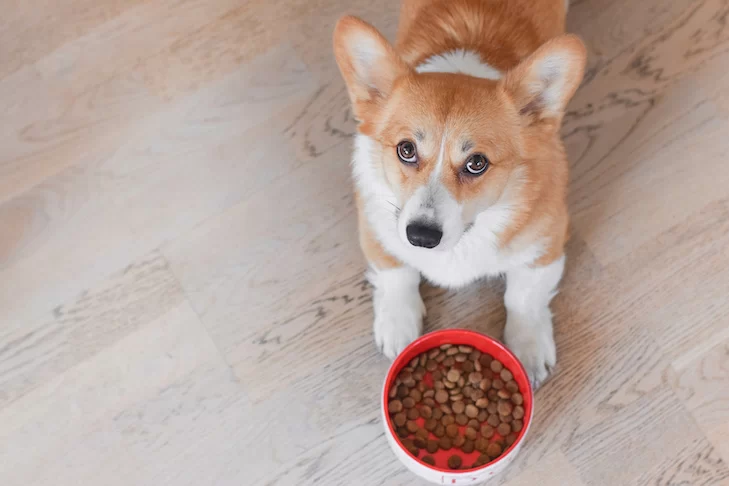Choosing the Best Dog Food for Puppies: What You Need to Know
As a pet owner, selecting the right food for your puppy is one of the most important decisions you'll make to ensure their health and well-being. With so many options available, it can be overwhelming to figure out which dog food is the best for your new furry friend. Having been through this process myself with my own puppy, I know how challenging it can be. But don’t worry! This guide will walk you through everything you need to know about choosing the best dog food for puppies, from the basics of puppy nutrition to specific brand recommendations.
1. Why Puppy Nutrition Is So Important
When I first brought my puppy home, I didn’t realize how crucial the right diet was for his growth and development. Puppies are like babies; they grow rapidly and require specific nutrients to support their energy levels, muscle development, and immune system. A proper diet ensures that they are healthy, happy, and able to thrive. Puppies’ nutritional needs are much different from those of adult dogs, so it’s important to select food that is formulated for their age and stage of development.
Unlike adult dog food, puppy food is rich in protein, fat, and other essential nutrients like vitamins and minerals. These help fuel your puppy’s growth and development, supporting their bones, joints, muscles, and cognitive function. It’s also essential for the immune system to build strong defenses against common illnesses.
2. What to Look for in Puppy Food
One of the first things I learned about puppy food is that not all options are created equal. Here are some key factors to consider when choosing the best food for your puppy:
- Protein: Puppies need a high-quality source of protein to support their rapid growth. Look for dog foods that list real meat, such as chicken, beef, or lamb, as the first ingredient. Protein helps build muscle and repair tissues, crucial for growing puppies.
- Fats: Healthy fats are essential for energy and maintaining a shiny coat. Omega-3 and Omega-6 fatty acids are particularly beneficial for skin health and cognitive function. These fats also provide the essential calories puppies need to stay active and playful.
- Carbohydrates: While protein and fats are critical, carbohydrates are important for providing energy. Whole grains like brown rice, oats, and barley are excellent sources of digestible carbohydrates. Some puppies may also benefit from grain-free options, especially if they have food sensitivities.
- Calcium and Phosphorus: These minerals are crucial for healthy bone and joint development. Too much or too little calcium can cause bone problems in growing puppies, so finding a balanced formula is key.
- Vitamins and Minerals: A variety of vitamins and minerals help support your puppy’s immune system, vision, and overall growth. Look for a food that includes a wide range of nutrients.
3. Wet vs. Dry Food: Which Is Better for Puppies?
Another decision I had to make was whether to feed my puppy wet or dry food. Both options have their advantages, and it depends on what works best for your puppy’s needs.
Wet food: Wet food can be easier for puppies to eat, especially for those with small teeth or those transitioning from a nursing phase. It’s also more hydrating, which can be beneficial for puppies who don’t drink enough water. However, it tends to be more expensive and has a shorter shelf life once opened.
Dry food: Dry kibble is more convenient and easier to store. It helps keep your puppy’s teeth clean and is generally more affordable than wet food. The downside is that it may not be as palatable to some puppies, and it doesn’t provide as much moisture as wet food.
In my experience, a combination of both wet and dry food works best for my puppy. I mix a bit of wet food into his dry kibble for added taste and hydration. However, it’s important to monitor your puppy’s weight and health to ensure they are getting the right balance of nutrients.
4. Best Dog Food Brands for Puppies
With so many brands out there, it can be hard to know which ones are the best. After researching and trying a few different brands, here are some of the top choices I recommend for puppies:
- Royal Canin Puppy Food: Known for its breed-specific formulas, Royal Canin provides tailored nutrition for various breeds of puppies. Their products are highly digestible and rich in nutrients that puppies need for healthy development.
- Hill’s Science Diet Puppy Food: Hill’s offers a balanced diet for puppies, including high-quality protein and antioxidants. It’s recommended by veterinarians and helps support your puppy’s immune system and overall health.
- Blue Buffalo Life Protection Puppy Food: Blue Buffalo’s puppy formula includes high-quality protein, whole grains, and essential fatty acids. It’s free from artificial additives, making it a good choice for sensitive puppies.
- Wellness Complete Health Puppy Food: Wellness offers a well-rounded formula that supports the health of your puppy’s skin, coat, bones, and joints. It contains DHA for brain development and comes in both wet and dry options.
- Orijen Puppy Food: Orijen offers high-protein, grain-free formulas that are packed with fresh, regional ingredients. It’s ideal for puppies with high energy needs and those that require nutrient-dense food for healthy growth.
5. How Much Should You Feed Your Puppy?
When I first started feeding my puppy, I had no idea how much to give him. Feeding guidelines are usually provided on the dog food packaging, but it’s also important to pay attention to your puppy’s individual needs. Factors like breed, size, activity level, and age will affect how much food your puppy needs.
As a general rule of thumb, puppies need to be fed 3-4 times a day, depending on their age. For instance, puppies under 12 weeks may need to eat more frequently, while older puppies can gradually transition to two meals a day. Always consult with your veterinarian to ensure that you’re feeding your puppy the right amount to support their growth and development.
6. Common Puppy Food Mistakes to Avoid
During my puppy’s early days, I made a few common mistakes when it came to his food. Here are some things you should avoid:
- Switching foods too quickly: It’s tempting to try different foods to see what your puppy likes best, but abrupt changes can upset their stomach. Always transition between dog foods gradually over a period of 7-10 days.
- Overfeeding or underfeeding: Be mindful of portion sizes to avoid obesity or malnutrition. Always follow the recommended guidelines and adjust based on your puppy’s needs.
- Feeding table scraps: While it’s tempting to share your food with your puppy, human food can be harmful to them. Stick to specially formulated puppy food to meet their nutritional needs.
By paying attention to your puppy’s diet and choosing the right food, you’re setting them up for a lifetime of health and happiness. I’ve learned a lot through trial and error, and I hope this guide will help you make the best choices for your puppy too!












